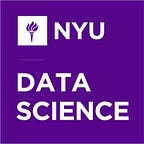CDS researchers develop a deep learning model for early Alzheimer’s disease detection
The model’s datasets are currently the largest publicly available for studying dementia
Alzheimer’s is the most prevalent form of dementia, and early diagnosis of the disease is essential to clinical trials and necessary treatments. A new study “Generalizable deep learning model for early Alzheimer’s disease detection from structural MRIs” by CDS researchers has developed a new approach to the early detection of Alzheimer’s using 3D deep convolutional neural networks. The research paper published in Nature Scientific Reports was authored by CDS PhD student Sheng Liu, CDS PhD student Weicheng Zhu, CDS Associate Professor of Data Science and Mathematics Carlos Fernandez-Granda, CDS affiliated professor and NYU Langone Health Assistant Research Professor Narges Razavian, and other colleagues.
Machine learning has proved to be an effective method for medical disease detection. Previous work in applying machine learning to Alzheimer’s disease diagnosis from MRIs was based on selecting features such as regional volumes and cortical thickness from sections of the brain affected by the memory loss and neurodegeneration associated with Alzheimer’s disease. Newer machine learning methods that use deep convolutional neural networks (CNNs) make it possible to isolate features from image data and have performed better than traditional methods.
By using a publicly available dataset from the Alzheimer’s Disease Neuroimaging Initiative (ADNI), the researcher’s model can tell apart people with normal cognition, mild cognitive impairment (MCI), and mild Alzheimer’s disease dementia. The researchers note that even when their model “erroneously” determined MCI for dementia, those patients progressed to dementia “significantly faster.”
The research also shows how deep learning methods are more efficient than the much-used neuroimaging (the medical imaging of the brain to diagnose disease and brain health) tool FreeSurfer. Based on the Markov Random Fields method, FreeSurfer takes an average of eleven hours per scan while the researcher’s model takes less than one second. In addition to being free and publicly available, the new model’s datasets are currently the largest available public data for studying dementia.
“We see great potential in AI-powered Alzheimer’s early detection from this project,” said Sheng. “Now we are closely working with NYU medical school on the clinical validation of the model. Hopefully, the AI model can be deployed to potentially support clinical practices for the early diagnosis of Alzheimer’s disease.”
Sheng is co-advised by Professor Carlos Fernandez-Granda, Professor Jonathan Niles-Weed, and Professor Narges Razavian. His research explores machine learning, specifically in robust deep learning with imperfect datasets, and their application to the medical field, such as Alzheimer’s disease detection.
By Meryl Phair
